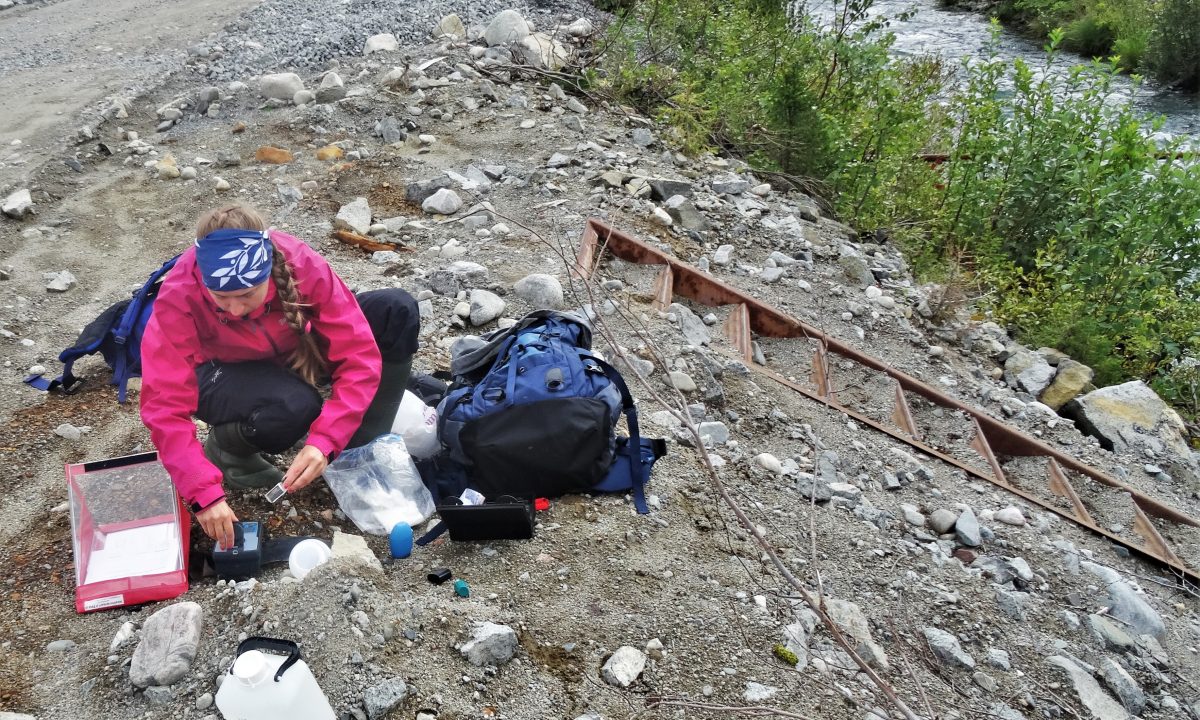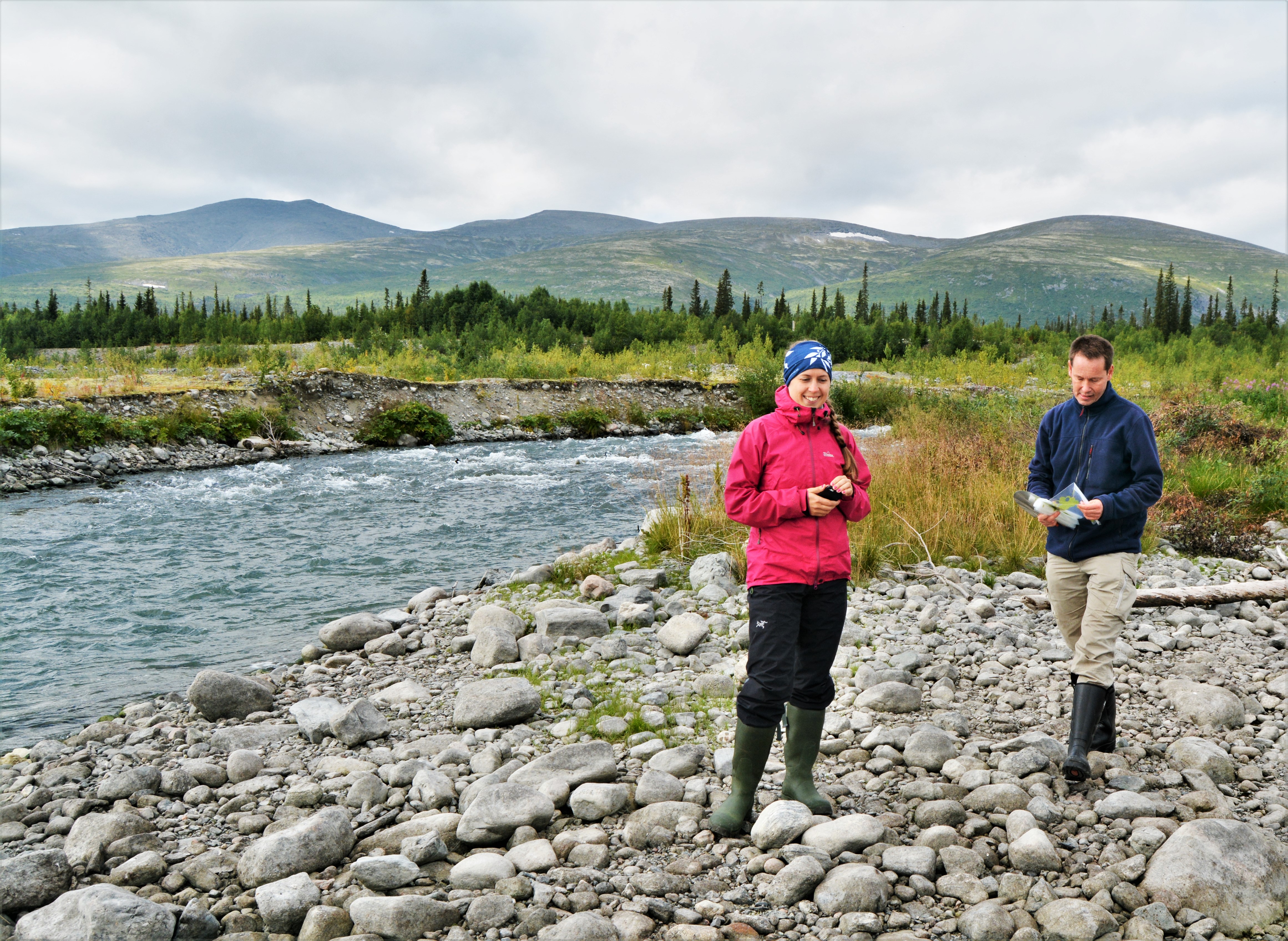Meet REXSAC PhD students: Sandra Fischer
Discover the first episode of our series of Q&A with REXSAC PhD Students. This time meet Sandra Fischer, PhD student at the department of Physical Geography, Stockholm University, since February 2017. She investigates the potential metal pollution spreading from mines to the surrounding environment and society.
Q: What drew you to the area/topic of your studies?
In parallel with my studies, I worked with international aid organizations with direct community interactions. I loved to see the connection between environmental science and how we manage our natural resources at the practical grass-roots level. When REXSAC announced this project and the PhD position I immediately caught interest since it is combining environmental and societal issues from many different disciplines.
What are the objectives of your work?
The objectives of my work is to investigate contaminants spreading from Arctic mines and how it affects the surrounding environment and society. Arctic mines are underrepresented in scientific literature when it comes to pollution pathway processes. The remoteness from urban areas and decision-makers usually makes contaminant issues a low priority. Taken together, we want to find out how we can improve environmental impact assessments in the Arctic to better evaluate consequences of planned, active and past mines. Do we have a sufficiently good overview of environmental mining impacts to take the best land-use decisions?
Currently, we have focused on an abandoned mining site in northern Sweden and the aim was to characterize the still ongoing pollutant pressure, even 100 years after its closure. Preliminary results show that the metal leakage was disproportionately high compared to the mine’s small operation (both in time and excavated volume) and that several tons of metals have been mobilized to the local environment during the last century. With this research we want to raise awareness of old contaminated sites that potentially could be a considerable landscape-scale problem.

How does it support the objectives and work of REXSAC?
My work is connected to Research Task 2 about the consequences of multiple pressures on Arctic landscapes and societies. One of such pressures are contaminants derived from extractive industries, and they could be in the form of diffuse pollutant sources over the landscape (e.g. abandoned old mining sites or air pollution) or be local point sources (e.g. active mine effluents). Pollution can also be considered over a longer time period, for example mine waste metal leakage accumulating in stream bed sediments over decades. I hope that our research could contribute to a better understanding of such pollutant pressures so that we can grasp better the full, and cumulative, consequences of resource extraction in the Arctic.
What has been your learnings or reflections from the REXSAC field-based coursework?
I have learnt that natural resource management in the Arctic is complex and there is no universal solution. The field-based coursework has enabled us to hear many different voices from different points of view. Most of all, the courses have provided the relevant context in the form of history, cultural anthropology, private companies, environmental concerns to be equally critical to each voice. As natural scientists, we are not trained to be critical to peoples’ motivation as we assume there is a universal “truth”. These courses have challenged my previous beliefs about the Arctic and taught me to question my role as a natural scientist and researcher. It has also been clear that interdisciplinary work takes time. Before we can collaborate across the fields you need to understand (to some degree) the other’s point of view. This has been an eye-opening experience for me to engage so much outside the natural science sphere and to challenge those fundamental baselines.
What are your career aspirations?
I want to continue working with extractive industries and societal issues from a natural science point of view. The last REXSAC course in Oulu, Finland, made it particularly clear that communication between natural scientists and the public can become problematic when information and knowledge are regarded differently. It would be very interesting to work with improving such communication in order to achieve better decision-making when it comes to extracting natural resources in vulnerable areas.
Photos: Fieldwork, Vasiliy Efimov





